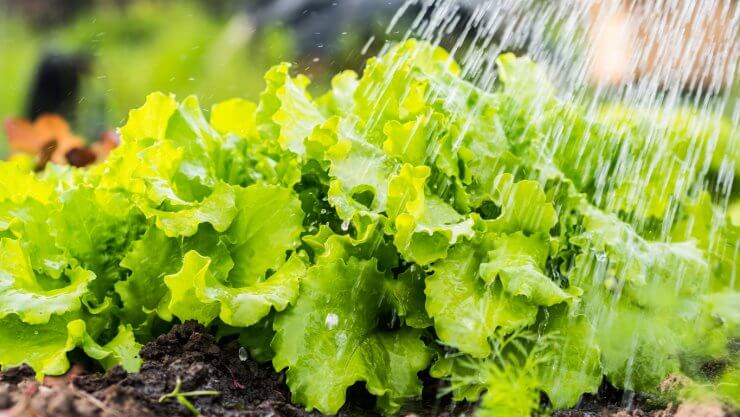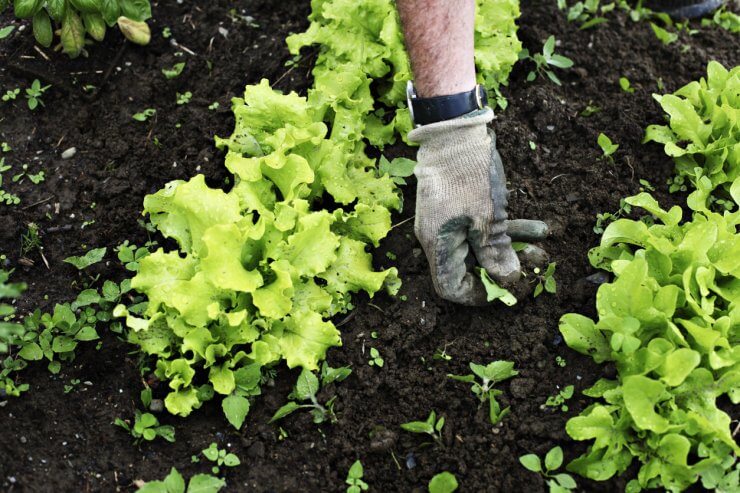
Lettuce plants being watered
Water
Once your lettuce plants are settled in—whether it’s in a container, a raised bed, or open ground—consistency is key when it comes to watering. Lettuce likes frequent light watering. Lettuce plants like soil that’s slightly moist, but not soggy.
In general, you’ll want to water lightly a few times a week; the frequency will depend on your specific environment. If the top of the soil is a little dry, that’s OK. But don’t let the soil dry out. This is especially important when you’re tending lettuce growing in containers—it’s not like they can stretch their shallow roots out in search of more water.
For lettuce in the ground, water early in the morning, and try to water close to the ground. You want to avoid soaking the leaves, since that can open the plants up to fungal infections. It’s best to water low and slow; early morning watering ensures that the sun will help burn off any extra moisture. Mulch is helpful to conserve water and deter weeds. You can lay down a 2- to 3-inch layer of wood mulch or compost to help with water retention.
Weeding

Gardener weeding a lettuce patch
When it comes to weeding around your lettuce plants, early and often is best. If you’ve used weed-free soil and well-rotted organic matter, and laid down mulch, you shouldn’t have a big weed problem.
Properly preparing your soil is an excellent preventive measure against the emergence of weeds. When you till or cultivate the area where you’ll plant your lettuce, remove weeds and debris. You’ll likely find that the first few weeks after planting are the only time you’ll be pulling up weeds around your lettuce.
If weeds spring up around your lettuce plants during the growing season, work the soil around the base of the plants very carefully. Remember that lettuce has shallow roots. If you’re overly enthusiastic in your weeding, you could wind up with extra lettuce for lunch.
Fertilizer
Lettuce is a heavy feeder when it comes to nitrogen, so it can benefit from a balanced 10-10-10 or 5-5-5 fertilizer diluted to half strength and applied every two weeks as your plants are growing.
Make sure that your soil is adequately prepared before you plant. Amend your soil in advance with several inches of rich organic matter—compost, well-rotted manure, or fish emulsion. Ideally, you should amend your soil in the fall before you plan to plant. Too much nitrogen in the soil can burn young plants.
How often do you have to fertilize or water your lettuce? Do you have any particular challenges growing lettuce? Please tell us about your tips for nurturing healthy lettuce plants.


 Previous
Previous

